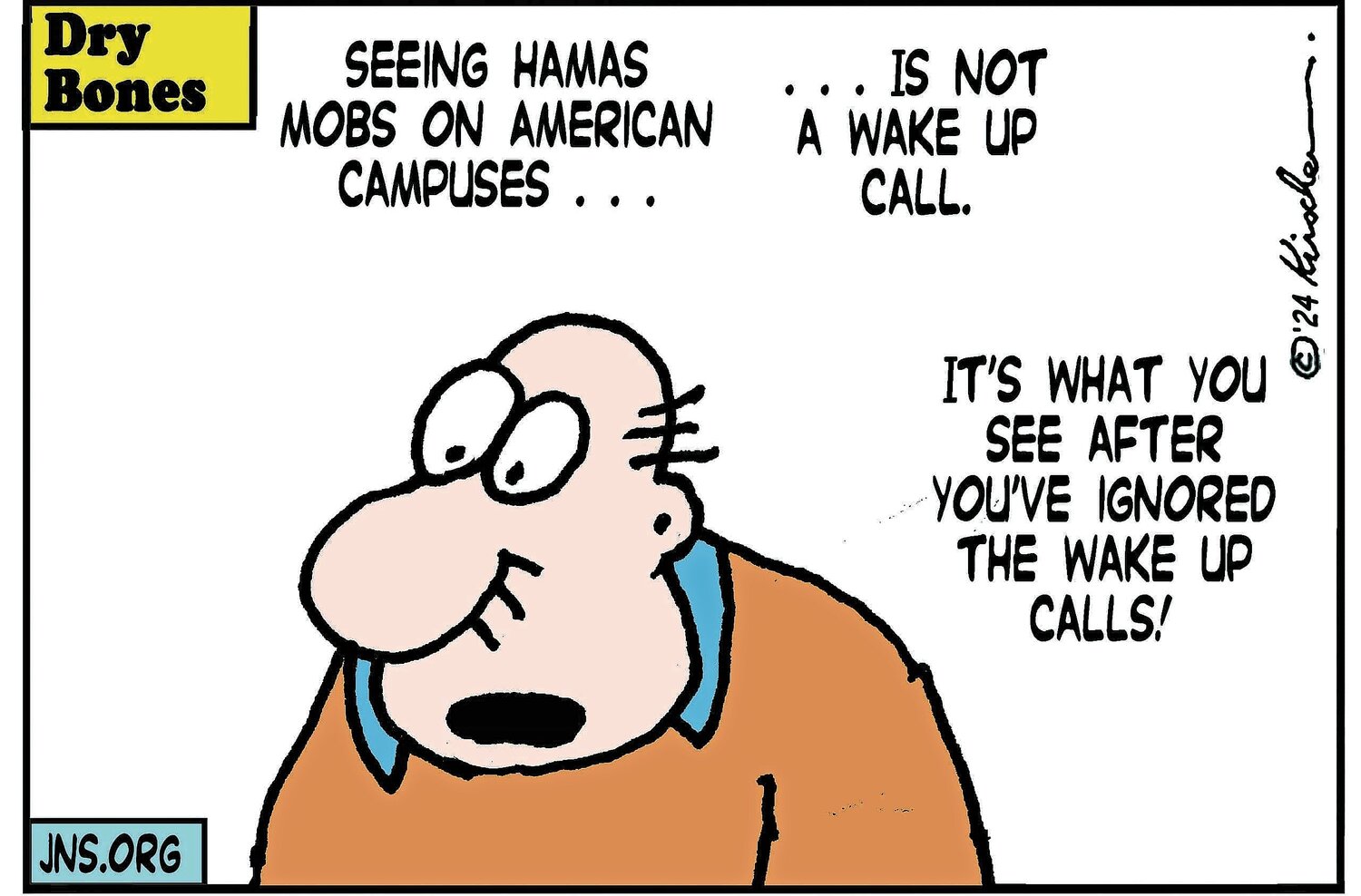Things are pretty awful: US college trauma is the new Jewish reality
Touro Law School panel talks college hate
Life for Jewish students on American campuses is as bad as you’ve heard — maybe worse — members of the collegiate universe told a Touro University Law School forum.
Oren Gross, associate dean of the University of Minnesota Law School, asked rhetorically whether the demonstrators were engaging in peaceful protest and an expression of free speech.
“This is anything but peaceful,” he said. “There’s hateful, threatening rhetoric and threatening actions,” including praise for the Intifada — “as we all know, in the two previous Intifadas, thousands of Israeli civilians lost their lives in acts of terror” — and declaring, under an image of an armed figure, “death to Zionism by any means necessary. Especially in the aftermath of Oct. 7th, there is no mistaking in what that actually means.”
“There are peaceful protests in different places. What’s happening in universities in the US is not,” said Miri Bar-Halpern, director of outpatient treatment service at the Boston Child Student Center and a clinical instructor of psychology at Harvard Medical School, who spoke about “traumatic invalidation.”
“That’s what happened to me after Oct. 7th,” she said. “I was denied my right to grieve.”
Universities should do their jobs and protect their students, she continued. “If I had a kid in college right now, I want this kid to be protected. I want my kid to be able to go to the library, to study for their tests to feel safe in their dorms and not to be scared to be leaving the house.”
Talia Segal, who completed studies in biomedical engineering at Georgia Institute of Technology, and a leader of the school’s Hillel, said although that campus was relatively peaceful, “even here, we saw protests where Hamas and Hezbollah were praised. And I think we shrugged it off, because we knew that things could be so much worse — but to have to kind of be okay with that is pretty absurd, I think.”
While Jewish students at George Tech did not feel physically unsafe, “a lot of us are just kind of constantly on edge, we’re not really sure who we can talk to,” Segal said. “We’ve been pushed out of certain other communities where we once found peace and friendships. For example, in the queer community, there was a big argument in the group chat about Zionism — and it was it was very othering for me and several my friends. Having to kind of pick and choose between our communities is really frustrating and harmful.”
Columbia Law School graduate Marie-Alice Legrand, founder and president of Law Students Against Antisemitism who is a native of Germany, said “the situation at Columbia is constantly deteriorating.”
“We have been observing a very steady normalization of violence in the form of words, but also in the form of actual physical violence and harassment,” said said.
“The protests that we’ve been observing created an environment that was so hostile, that even I who I’m not Jewish, have not felt safe to go to campus. They outright supported Hamas, without any ambiguity, they were showing pictures of the Hamas logos on the phones. And they sang those chants literally call for genocide.
“One more thing that we’ve seen,” Gross of Minnesota added, “even if there is a recognition that some sort of antisemitism took place, it is treated as low on the hierarchy of offense.
“The subjection, if you will, of antisemitism, to perceived higher forms of offense was made clear in a statement by a professor at my university, a candidate for the position of associate dean for DEI in the College of Liberal Arts, who called into question the rape of Israeli women and girls by Hamas terrorists — because it was racist, to say that Hamas, that is men of color, committed rape.
“Forget #metoo, ignore #webelieveyou, because those do not apply to Israeli and Jewish women because there are, if you will, bigger offenses involved and regardless, we support by all means necessary and by all means necessary, also involves rape.”
The Touro event was hosted by Samuel J. Levine, professor of law and director of the Jewish Law Institute, and moderated by Dr. Alan Kadish, president of Touro University.
“Some of our audience members were hoping that we could close on a sense of optimism, hope for the future,” Levine said. Maybe next year, she added.






